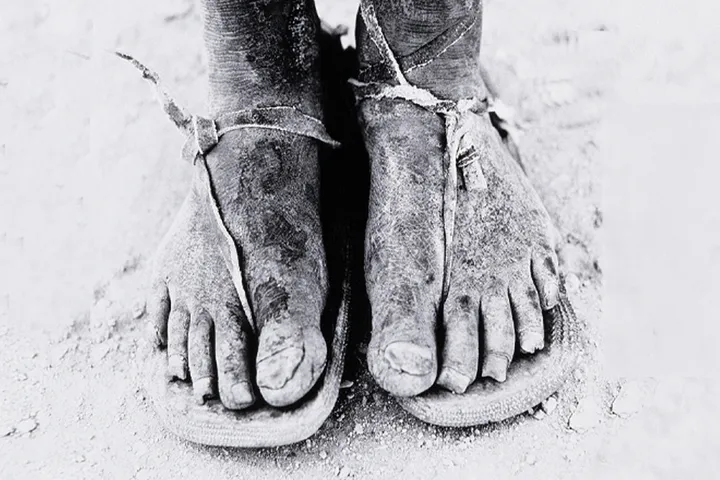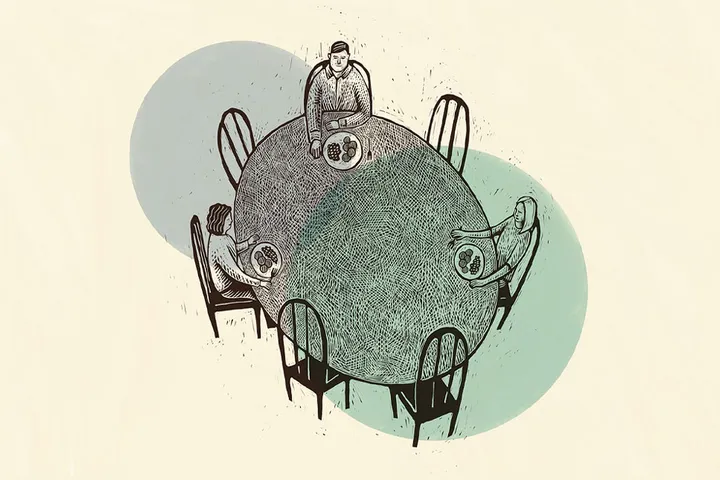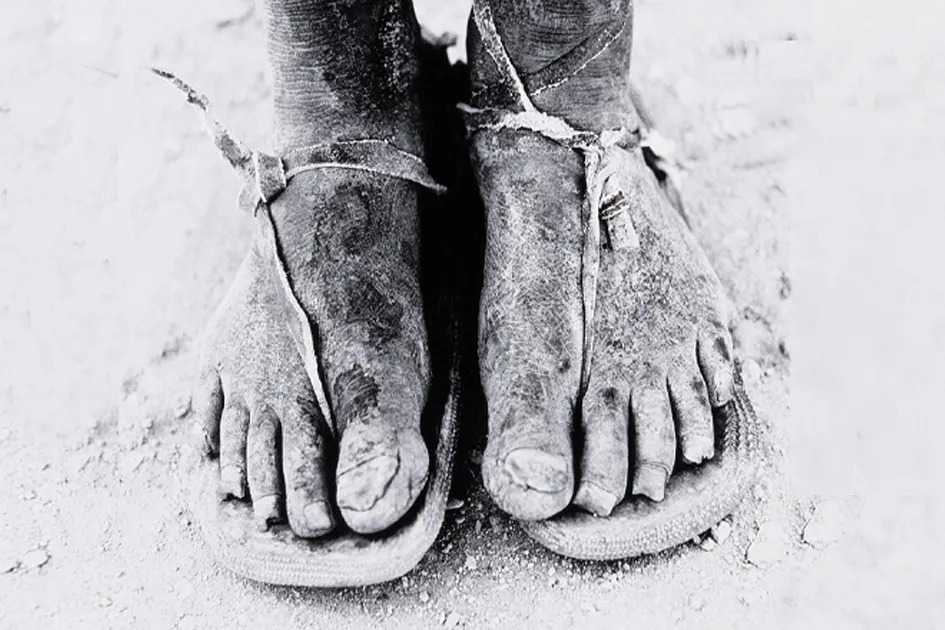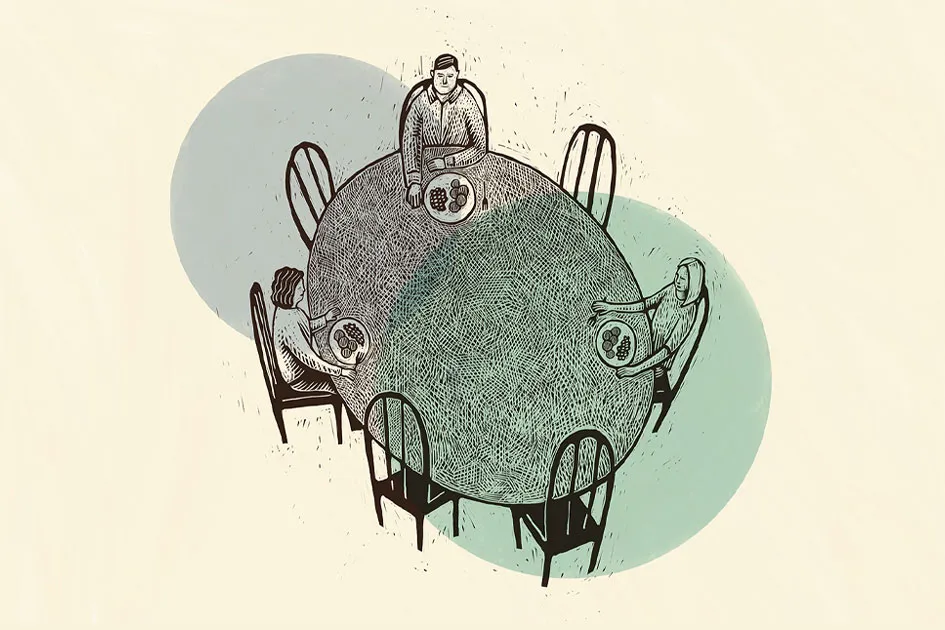In the months leading up to our cross-country move, I made a detailed timeline of every possible relocation-related task, researched every possible glitch, compared costs, gathered records, and logged hours of sleepless nights as I ran worst-case scenarios in my mind.
I’ve long viewed myself as an alert, responsible person who was making sure to take care of those around me. My efficiency and organizational skills have often been rewarded in both the workplace and at church. But at the time of our move, those closest to me knew I could be controlling and short-tempered when I was under stress. And the truth was that I was always under stress. Bad things happened. Unwelcome surprises shattered plans. I had long lived under the axiom “Anything that can go wrong will go wrong.” Therefore, it’s best to be prepared for every eventuality. What if the moving truck didn’t show up? What if our car containing all our medical records and important paperwork was stolen at a rest stop? What if a bolt of lightning struck our new home the night before we moved in?
On the day of our move, the truck showed up. The car wasn’t stolen. Lightning didn’t strike our new home. But it didn’t matter. My mind was already racing to prepare for the next set of potential disasters awaiting us as soon as the last box was unpacked.
A caring Christian counselor suggested that maybe my assertively responsible ways were a response to a childhood and young adulthood marked by significant trauma. From the time I was very young, I’d been fed a steady diet of verbal abuse focused on my appearance. I heard I was ugly and unlovable on an ongoing basis. While I couldn’t change my looks, I could control other circumstances. So I vowed to stay one step ahead of every crisis in my family to guarantee a problem-free outcome. All this time, I’d learned to frame the habit as being a good caregiver, but I began to realize that the person I was most focused on protecting from problems or criticism was myself. I had never considered that hypervigilance—a constant state of readiness to fight, flee, or fold—was a byproduct of that trauma.
I vowed to stay one step ahead of every crisis in my family to guarantee a problem-free outcome.
Maybe constantly monitoring my environment for signs of danger, seeking to plan for (or control) every outcome, and running through worst-case scenarios in my mind at 3 a.m. wasn’t the strength I’d always considered it to be. While it’s true that I was being responsible and taking good care of those around me, there was a darker side to my overcaution. Fear shadowed me at every turn, and I managed its effects in my life by seeking control of every unpredictable situation I might encounter.
In small doses, hypervigilance can be a gift. For instance, when someone’s walking alone in a parking garage late at night, that state of heightened readiness is a realistic response to what might be a dangerous situation. And due to the rise in violence in our society, we must maintain situational awareness when we’re gathered in public spaces like arenas, theaters, schools, and even at church.
But the kind of hypervigilance I’ve lived out is on the clock 24/7. It never goes off duty. I’m discovering there’s no quick fix for a long-standing habit that presents as conscientiousness and leadership (though it can also show itself in obsessive thinking and paranoia). Counseling and the spiritual disciplines of prayer, confession, and especially meditation on Scripture have all helped me move forward. Some survivors of trauma also benefit from medication and specialized therapies to help them live with residual effects.
In considering all this, I’ve been reminded there is a positive form of vigilance to which we are called. Jesus warned His followers not to anesthetize their godly watchfulness with partying, substance abuse, or anxiety, but instead to remain sober and alert. He said, “Be always on the watch, and pray that you may be able to escape all that is about to happen, and that you may be able to stand before the Son of Man” (Luke 21:36 NIV).
While it’s true that I was being responsible and taking good care of those around me, there was a darker side to my overcaution.
Echoing the call to watch for the predatory schemes of our spiritual enemy, Peter tells the young congregations in his care, “Be of sober spirit, be on the alert. Your adversary, the devil, prowls around like a roaring lion, seeking someone to devour” (1 Pet. 5:8).
But this kind of attentiveness is not fueled by fear. Paul urged his friends in Colossae, “Devote yourselves to prayer, being watchful and thankful” (Col. 4:2 NIV). My own hypervigilance grew in an environment that taught me survival required cultivating self-reliance so I could stay three steps ahead of every potential crisis and threat. I didn’t understand how to assess the difference between necessary vigilance and fear-fueled self-protective hypervigilance.
In contrast, Paul coupled necessary watchfulness with prayerful, thankful trust in a dependable heavenly Father. Though I’ve been a follower of Jesus for decades, I am learning for the first time in my life how to do that very thing. As the Holy Spirit has revealed the roots of my overcaution, He has encouraged me to trust Him instead of attempting to control my circumstances. When a plan changes (and plans are always changing!), I try to step back, take a breath, and ask God for clarity. It doesn’t always come easily, but I am learning the truth of Paul’s words in 2 Corinthians 3:17: “Where the Spirit of the Lord is, there is freedom.” And that freedom includes being unshackled from the question of What if? which shaped my life for decades.





